The Kremlin Trolls and Fake News
Parasites
When Vladimir Lenin predicted in 1917 that the potential of film, a medium that was just beginning to manifest itself, would become more important for propaganda than any other medium, the Internet was still a distant dream. A hundred years later, the Kremlin has adapted to evolution and uses all means to influence public opinion with the help of digital techniques. This is done, among other things, by creating and expanding its own web platforms such as ThinkRussia.com and Sputnik. But because the visitors of these forums are mainly like-minded, the Russian regime has come up with a way to break into other virtual places as well. This is relatively easy to organise thse days, since the rapid development of the so-called Web 2.0 applications or the interactive internet that we know from platforms such as Facebook and its Russian counterpart vKontakte, and also Instagram, Telegram, TikTok and the like, and later also thanks to the rapid development of Artificial Intelligence (AI).
These days, you don't have to start a website or a blog yourself to air your opinion; you can also parasitise the efforts of others and spread your messages en masse through existing blogs, newsgroups, chat rooms and other social networks that allow comments from visitors. And that is exactly what the Kremlin does by deploying internet trolls. Internet trolls are people who deliberately give the discussions on these forums a different twist, often using multiple hidden identities. Unsuspecting internet visitors are sometimes surprised by the massive expressions of support or even hagiographies that are posted daily on social media about Vladimir Putin. It seems as if thousands of Russians spontaneously take the trouble to praise their Great Leader to the skies and are prepared to give their lives for him, but in essence they are groups of paid hack writers who assume various identities and write in 12-hour shifts what they are told. There are already several such groups. The best known was, until mid 2023, the Агентство интернет Исследований [Agentsvo internet Issledovani] or Internet Research Agency, which operated from Saint Petersburg.
Internet Research Agency
In June 2014, the private news service BuzzFeed from New York was able to intercept some documents related to the so-called Агентство интернет Исследований [Agentsvo internet Issledovani] or Internet Research Agency, a company in St. Petersburg that was founded on July 26, 2013 by Mikhail Kurkin - a front man -, with Nikolai Chumakov as its director. But according to reports from the Centre for the Study of Computer Propaganda at the University of Oxford, the first experiments with campaigning on social networks had already been carried out during the regional elections of 2009.

The documents that BuzzFeed was able to collect showed that the Internet Research Agency was a company that professionally engaged in trolling in order to glorify the figure of Vladimir Putin and to counter all criticism of his regime on the Internet. The man behind the company was Yevgeny Viktorovich Prigozhin (1961-2023), who at that time was the owner of the catering company Concord, which, among other things, had organised the celebration of Putin's re-election as president in 2012. For the year 2014, Prigozhin received a budget of 10 million dollars from the Kremlin to organise the trolling.

Yevgeny Viktorovich Prigozhin
Prigozhin became world famous with the paramilitary Wagner group, which fought on the side of dictator Bashar al-Assad (°1965) in the Syrian civil war, and which was also deployed in Ukraine in 2022, among other things to try to assassinate President Volodymyr Oleksandrovich Zelensky (°1978) and to evacuate the Azovstal factories in Mariupol. However, the relationship between the foul-mouthed Prigozhin and Putin began to become increasingly clouded, and after the Wagner group entered the city of Rostov-on-Don on June 23, 2023 in order to launch a raid on Moscow from there, Putin apparently decided that enough was enough.
On August 23, 2023, an Embraer Legacy 600 private plane belonging to the Wagner Group crashed over the hamlet of Kuzhenkino in Tver Oblast. The plane was carrying Prigozhin and Wagner Group founder Dmitry Valerievich Utkin (1970-2023). There were no survivors.
The Ministry of Truth
When the existence of the Internet Research Agency became known in 2014, the trolls were housed in a modern four-storey office building at Savushkina Ulitsa 55 in St. Petersburg
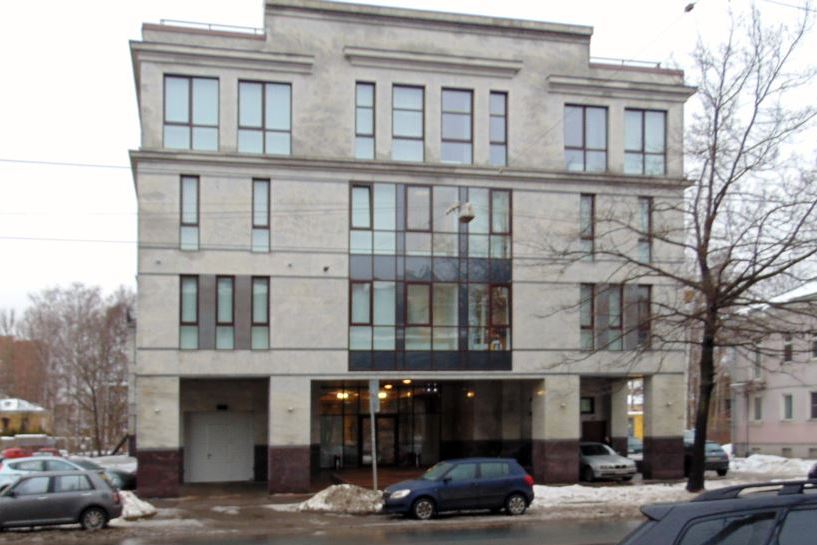
Savushkina Ulitsa 55 in St. Petersburg
The troll army had probably existed for a long time, but in August 2013 the Research Agency settled at Primorskoye Shosse No. 131 in Olgino, St. Petersburg. This earned them the nickname Olgino trolls. The organisation was then led by Aleksey Valeryevich Soskovets, a young businessman from the Наши [Nashi] or Ours, a youth movement sometimes called the Putin Jugend, in analogy with the Hitler Jugend in Nazi Germany. Soskovets was the owner of the North-West Service Agency, an events agency. His contacts with Putin's entourage had paid off handsomely. In all the public tenders for holding holidays, forums and sports competitions for the authorities of St. Petersburg in which they participated, they won the contract.
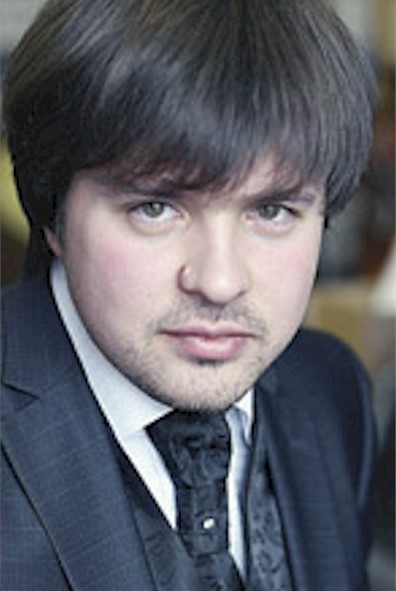
Aleksey Valeryevich Soskovets
In 2014, they moved to a larger building in Savushkina ulitsa, and on February 1, 2018, they moved again, this time to occupy four floors in the Lachta-2 business center in Optikov ulitsa No. 4, building 3. And so they became the Lachta trolls.
The building was the bass of two similar companies. In addition to the aforementioned Internet Research Agency, it also housed the Интернет исследования [Internet issledovanija] or Internet Research, a company owned by Mikhail Ivanovich Bystrov, a former police officer from Saint Petersburg. That company also belonged to Yevgeny Prigozhin's Concord holding.
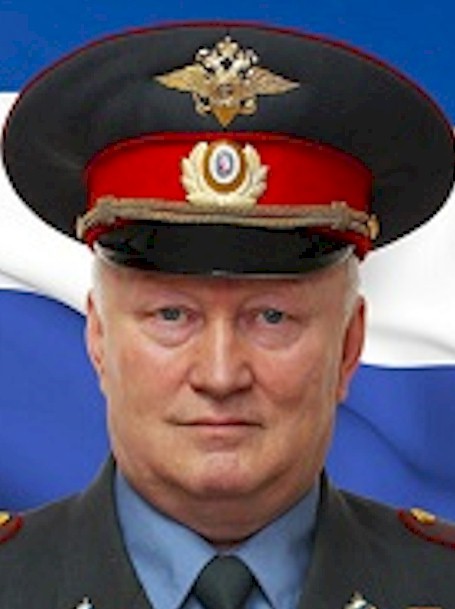
Michail Ivanovitsj Bystrov
The Research Agency recruited its - mostly young - employees at, among other places, the so-called Seliger camp. This is an annual gathering of young people at Lake Seliger, some 350 km from Moscow, with a strongly indoctrinaire character, which is organised by the above-mentioned movement Ours. One of the people responsible for the branch in Saint Petersburg was Maria Leonidovna Kuprashevich (°1984), an actress who in 2013 had tried to get a job at Novaya Gazeta and several other independent newspapers, not to provide good journalism, but to be able to publish material that could discredit the publishers.

Maria Leonidovna Kuprashevich
The trolling was organised in a professional manner. In 2015, 1,000 employees worked around the clock, in 12-hour shifts. They worked in several specialised departments, the names of which spontaneously brought to mind the Ministry of Truth from the novel 1984 by George Orwell (1903-1950).
One of the departments was the Отдел Специалистов социальных сетей [Otdel Spetsialistov sotsialnikh setey] or the Department of Specialists in Social Networks. They posted their comments on networks such as Twitter, LiveJournal, Facebook or its Russian counterpart vKontakte.
The Отдел блогеров [Otdel blogerov] or Bloggers Department focused on the blogs of well-known opponents of the Russian regime, such as Aleksey Anatolyevich Navalny (1976-2024), while the Отдел быстрого реагирования [Otdel bystrogo reagitovaniya] or Rapid Intervention Department was ready to respond immediately to current events
The Креативный отдел [Kreativni otdel] or Creative Department designed the many so-called demotivators. These were cartoons, photomontages, memes and graphics that could be spread quickly on the internet. They created web pages with URLs that were difficult for the layman to remember, such as http://xn--80acbo6d9a.xn--p1ai/index.php, on which they published thousands of ready-made demotivators for the benefit of the trolls.
Creating confusion
In April 2014, the trolls led by Igor Osadchi started an organized online campaign to change the public opinion in the Western world in a way that would be useful to the Russian authorities regarding a military intervention in Ukraine. This became the start of a war that was initially only fought in the Donbas, but later, on February 24, 2022, expanded into a full-scale and bloody invasion of Ukraine.
Between April 2014 and March 2020, the trolls were also very active in calling for dozens of demonstrations in the United States. During that period, at least 75 projects were identified to spread fake news on various topics, including Obamacare, cases of election fraud, the influence of Islam, the Black Lives Matters movement, the Brexit, and many more. The trolls operated under false names such as United Muslims of America, Stand For Freedom, Down with Hillary, Tennessee Republicans, Heart of Texas, BlackMattersUS, LGBT United and many others. To create confusion, they organised rallies both for and against Donald Trump.
March 12, 2020, Clarissa Ward of the news channel CNN revealed that the trolls also tried to disrupt the 2020 presidential campaign in the United States from Nigeria and Ghana
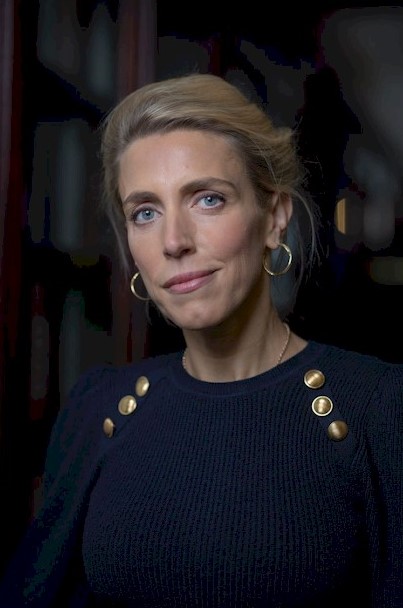
Clarissa Ward
No teamwork
It might suggest teamwork, but nothing could be further from the truth. Just like in the novel 1984, the employees of the various departments in the Savoeshkina ulitsa No. 55 in St. Petersburg rarely or never saw each other. This was a deliberate choice that was also clearly stated in the Приказ «О разъяснениях дисциплинарного характера» [Prikaz «O razyasneniyakh distsiplinarnogo kharaktera»] or the Regulations On Clarifications of Discipline. «Close personal contacts in the company are expressly prohibited», the regulations stipulated. During their 12-hour shift, the trolls were also not allowed to leave their premises, and all curtains remained closed.
The Russian blogger Marat Burkhard managed to work undercover in Savushkina ulitsa No. 55 for two months in early 2015. He later explained how, in each department, the trolls were divided into groups of three. One of them played the злодей [zlodej], or villain. He started things off by criticising the authorities on a blog or network. Then the other two contradicted him, posting satirical images or graphs and praising Putin’s leadership. They did this under different identities. One moment they could be a housewife baking a cake in her kitchen in Yekaterinburg, and two minutes later they could be a truck driver stuck in a traffic jam between Tver and Moscow. A troll had to post at least 135 comments a day, 50 of which had to be on news sites. They had to manage six different accounts on Facebook and send out 50 tweets from 10 different Twitter accounts. Each message had to be at least 200 characters long.
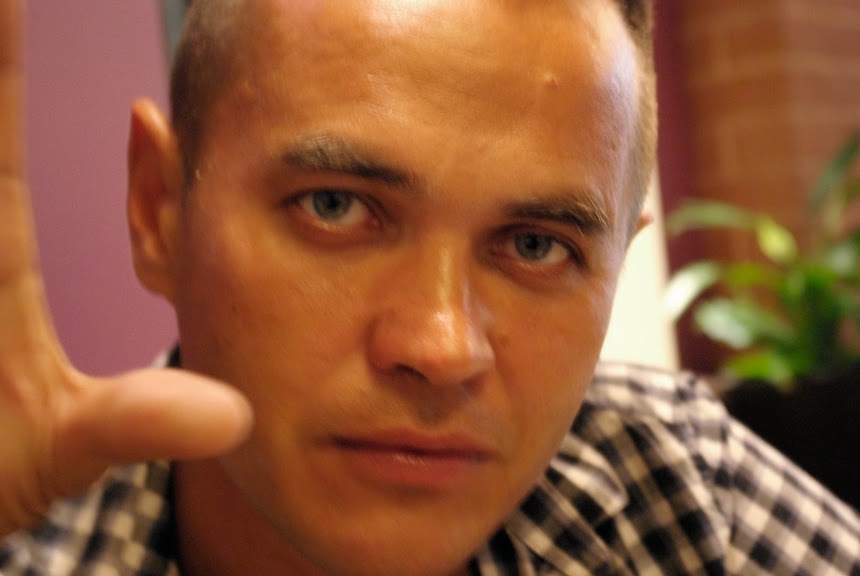
Marat Burkhard
The trolls were also not allowed to post whatever they liked. They were given quite detailed information about the topics to be covered and the corresponding hashtags and links to graphs and images. We were able to get our hands on their instructions for the week of February 28 to March 7, 2015, a 118-page document, drawn up the day after the murder of the well-known opposition leader Boris Efimovich Nemtsov (1959-2015). The main topics at that time were Opposition, Ukraine, VVP (Vladimir Vladimirovich Putin), the United States and Europe. For each topic, the trolls were given a description of the topic and an overview of the new «facts», the «correct» positions and conclusions, and the hashtags and keywords to be used. Only when they were exposed they sometimes got confused. When your webmaster addressed a troll directly in a discussion on the Facebook page of The Moscow Times, the troll abandoned his official role. He could only respond with «u fool go to hell», which was far less than the required 200 characters. You can see an example of instructions for the trolls via the link below.
However, they sometimes made mistakes. For example, they once published a meme from a Russian magazine that was distributed in Kherson, Ukraine, with the title «After all this, how can anyone still claim that there is no Nazism in Ukraine?» There was one small problem, however: the photo showd a demonstration of Russian neo-Nazis in Moscow in 2012.
Sometimes former trolls came forward. One of them, journalist Lyudmila Savchuk (°1980) went undercover at the troll factory for a while and even sued her former employer for violations of labour law. What no one expected happened: she won her case, albeit for the symbolic compensation of one ruble.
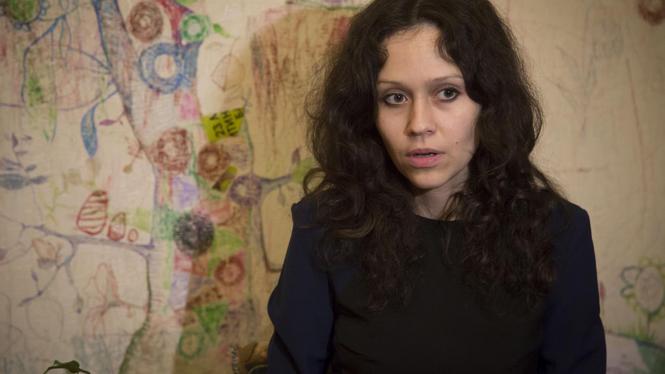
Lyudmila Savchuk
The earnings
A trained troll earned about 40,000 rubles a month. At the time, that was 546 euros or 614 dollars. For a Westerner, that may not seem like much, but it was already considerably better than the 25,000 rubles - 341 euros or 384 dollars - that a journalist earned at a newspaper. Multilingual trolls who can tackle foreign websites earned as much as 65,000 rubles - 887 euros or 997 dollars - or more.
Working as a troll required absolute dedication, because the system was very repressive. You had to get 135 posts a day, and being late for work was punishable by a penalty of 500 rubles, which was 6.8 euros or 7.7 dollars. The latter has produced some entertaining Monty Python-style videos of trolls running around trying to get to work just in time. Anyway, the trolling was serious business: the offices were neat and bare, no personal decorations were allowed, and laughing at work was forbidden. Anyone who did so could be fired.
These trolls are rushing to avoid a 500 ruble fine
The trolls after Prigozhin
Prigozhin’s death resulted in the dissolution of the Internet Research Agency on July 1, 2023, but that did not lead to the cessation of the trolls’ activities.
The Internet Research Agency itself splintered into several groups. The group Storm-1516 is led by the Russian anti-liberal think tank Centre for Geopolitical Expertise and is supported by the so-called Foundation for Combating Injustice, a propaganda group formerly run by Prigozhin that poses as a human rights organisation (not to be confused with a nearly identically named civil society movement previously founded by Aleksey Navalny). Storm-1516 has a team that produces social media videos with paid actors and fake people generated by artificial intelligence.
There is also the Storm-1099 group, which creates fake news websites, the Storm-1679 group, which produces documentaries and news reports from fake but credible lookingorganisations, and the Rybar channel of Mikhail Sergeevich Zvinchuk (°1991), which posts disinformation from fake accounts on social media.
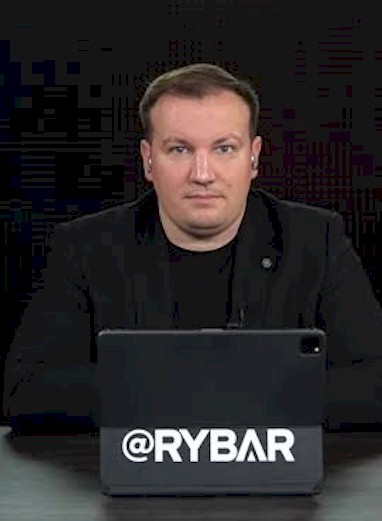
Mikhail Sergeevich Zvinchuk
An initiative that does not come from the Prigozhin stable, but which did receive his financial help in its development, is the so-called Доппельгангер [Doppelganger] or Look-alike created by the IT company Social Design Agency (SDA), which produces fake websites that look like the real websites of Der Spiegel, Le Figaro, Le Parisien, Le Monde, Fox News and The Washington Post, obviously with the aim of sowing doubts about the authenticity of the reports that these magazines publish on their real websites.
Portal Kombat
On February 13, 2024, Viginum, a French agency responsible for combating foreign digital attacks, reported that they had dismantled and taken down a large network of websites full of fake news. Viginum's report gives a clear picture of a large network set up by Russia to spread disinformation en masse.
The Portal Kombat network had no fewer than 193 websites that had published 150,000 messages between September and December 2023 in France, Germany, Austria, Switzerland, Poland, Spain, the United Kingdom and the United States. The messages sang the praises of Russian military operations in Ukraine, justified the invasion and tried to undermine the Ukrainian resistance. Social media platforms such as Telegram were used to automatically share messages en masse.
Viginum did note that the websites did not reach a large audience, unlike previous disinformation campaigns. The main aim was to appeal to targeted audiences.
If Bulgakov were alive today, he would undoubtedly feature a few trolls alongside the likes of Nikanor Ivanovich Bosoy and Aloisy Mogarych, and Yevgeny Prigozhin and Mikhail Bystrov might parade at Satan's Ball in the footsteps of Baron Meigel
Looking for staff The following advertisement recruited the first employees for the troll factory at the end of August 2013 on social networks
We are in need of Internet operators! Work in a luxurious office in OLGINO!!!! (metro station Staraya Derevnya), payment 25,960 per month. Task: posting comments on Internet sites, thematic posts, blogs, social networks. Writing reports from screenshots. The work schedule is selected individually. Payment is weekly, 1,180,- per shift (from 8:00 to 16:00, from 10:30 to 18:30, from 14:00 to 22:00). PAYMENTS WEEKLY AND FREE MEALS!!! The employment is official or on a contract basis (optional). Trainings are possible! |






